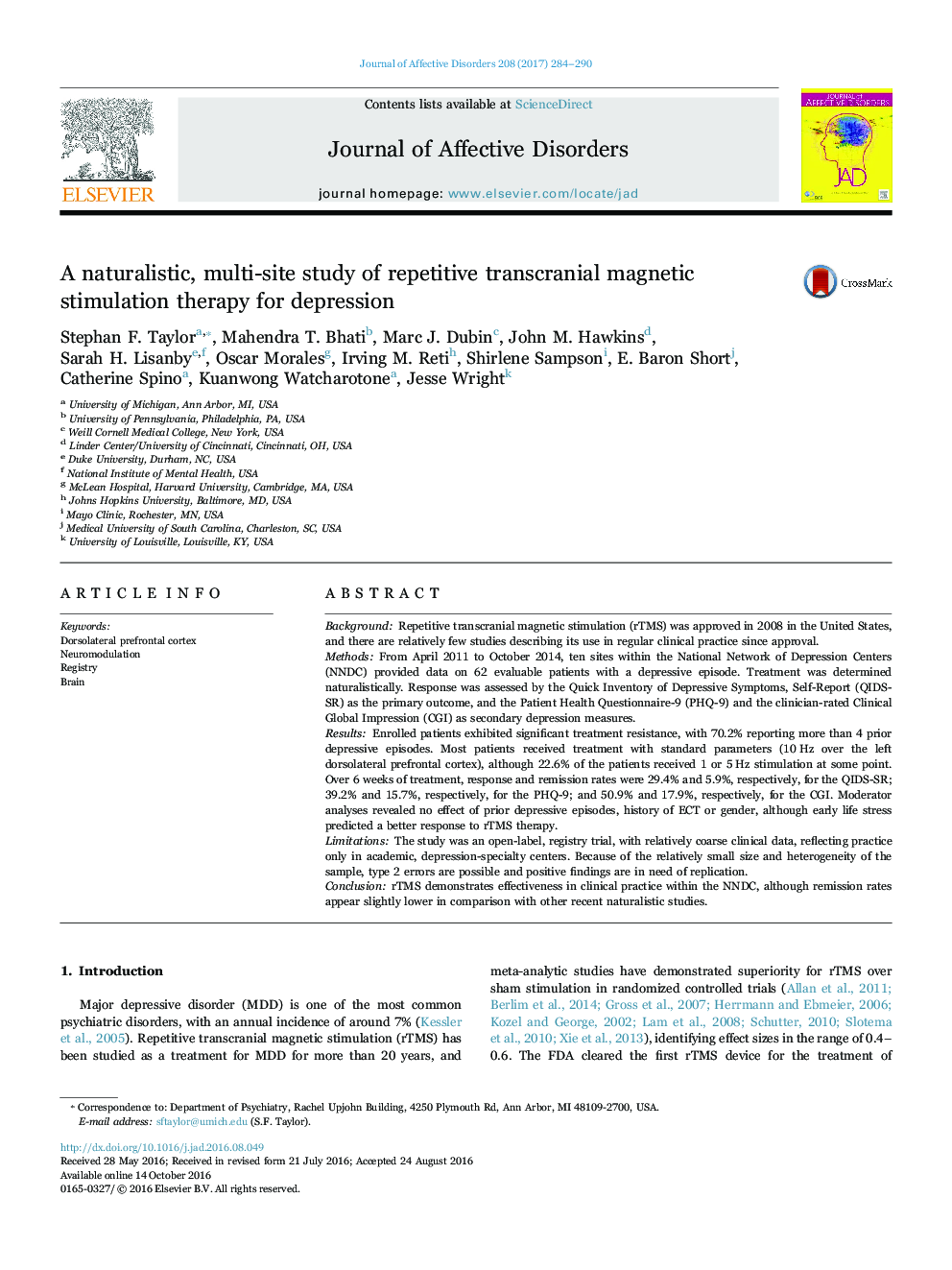| کد مقاله | کد نشریه | سال انتشار | مقاله انگلیسی | نسخه تمام متن |
|---|---|---|---|---|
| 5722089 | 1608117 | 2017 | 7 صفحه PDF | دانلود رایگان |
- A snapshot of the practice of TMS for major depression in academic centers.
- Response and remission rates on self-rated scale 29.4% and 5.9%, respectively.
- Response and remission rates on clinician-rated scale 50.9% and 17.9%, respectively.
- Early life stress was a predictor of better TMS response.
BackgroundRepetitive transcranial magnetic stimulation (rTMS) was approved in 2008 in the United States, and there are relatively few studies describing its use in regular clinical practice since approval.MethodsFrom April 2011 to October 2014, ten sites within the National Network of Depression Centers (NNDC) provided data on 62 evaluable patients with a depressive episode. Treatment was determined naturalistically. Response was assessed by the Quick Inventory of Depressive Symptoms, Self-Report (QIDS-SR) as the primary outcome, and the Patient Health Questionnaire-9 (PHQ-9) and the clinician-rated Clinical Global Impression (CGI) as secondary depression measures.ResultsEnrolled patients exhibited significant treatment resistance, with 70.2% reporting more than 4 prior depressive episodes. Most patients received treatment with standard parameters (10Â Hz over the left dorsolateral prefrontal cortex), although 22.6% of the patients received 1 or 5Â Hz stimulation at some point. Over 6 weeks of treatment, response and remission rates were 29.4% and 5.9%, respectively, for the QIDS-SR; 39.2% and 15.7%, respectively, for the PHQ-9; and 50.9% and 17.9%, respectively, for the CGI. Moderator analyses revealed no effect of prior depressive episodes, history of ECT or gender, although early life stress predicted a better response to rTMS therapy.LimitationsThe study was an open-label, registry trial, with relatively coarse clinical data, reflecting practice only in academic, depression-specialty centers. Because of the relatively small size and heterogeneity of the sample, type 2 errors are possible and positive findings are in need of replication.ConclusionrTMS demonstrates effectiveness in clinical practice within the NNDC, although remission rates appear slightly lower in comparison with other recent naturalistic studies.
Journal: Journal of Affective Disorders - Volume 208, 15 January 2017, Pages 284-290
